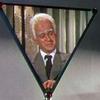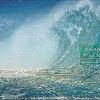Doctor_Morbius

Joined: Oct 26, 2008
Posts: 608
This Planet Earth

|

Posted on Oct 14 2009 03:48 PM
I don't have any idea if Maple is any brighter than Rosewood, even though I have Strats with each. I do know that I have pickups that are brighter than others.
— Cats 'n' Strats, 'cause that's how I roll - I eat reverb for breakfast!
Fenderus Collecticus
Strat Blender Pot Modification HERE
|
Tuck

Joined: Sep 02, 2006
Posts: 3166
Denver, CO







|

Posted on Oct 14 2009 05:32 PM
I can see Jake's explanation in terms of the fingerboard as part of the resonating elements, or perhaps something about the hardness of the wood affecting the precise acoustic characteristics of the fretting on the attack part of the note envelope. But I can also imagine the color of the wood affecting the psychology of the player and their playing.
You can test whether there is any perceptible affect in several different ways, of course. For example, you could take two guitars differing essentially only in fretboard material, the same amp, etc., under identical conditions, and one or more guitarists to play the same sets of samples on both setups. Then you need people to see if they can tell which fretboard they are hearing without seeing it.
I suppose theoretically the guitarist should also be unable to see the fretboard while playing it. Poll them afterward to see if they could tell. Hopefully you could rely on them to tell you if it was really the feel or just the smell of the fish sandwich eaten by the guy holding the maple fretboard guitar.
I'm a little skeptical here, but not a stone disbeliever. I do believe there are people who can tell what Fender guitar on what setting. Not me, of course. I can usually tell if it's a guitar or a saxophone, but the rest of it is asking more than I can offer.
|
synchro

Joined: Feb 02, 2008
Posts: 4540
Not One-Sawn, but Two-Sawn . . . AZ.





|

Posted on Oct 14 2009 07:19 PM
Tuck
I can see Jake's explanation in terms of the fingerboard as part of the resonating elements, or perhaps something about the hardness of the wood affecting the precise acoustic characteristics of the fretting on the attack part of the note envelope. But I can also imagine the color of the wood affecting the psychology of the player and their playing.
You can test whether there is any perceptible affect in several different ways, of course. For example, you could take two guitars differing essentially only in fretboard material, the same amp, etc., under identical conditions, and one or more guitarists to play the same sets of samples on both setups. Then you need people to see if they can tell which fretboard they are hearing without seeing it.
I suppose theoretically the guitarist should also be unable to see the fretboard while playing it. Poll them afterward to see if they could tell. Hopefully you could rely on them to tell you if it was really the feel or just the smell of the fish sandwich eaten by the guy holding the maple fretboard guitar.
I'm a little skeptical here, but not a stone disbeliever. I do believe there are people who can tell what Fender guitar on what setting. Not me, of course. I can usually tell if it's a guitar or a saxophone, but the rest of it is asking more than I can offer.
I think that everything has a contribution, but that contribution may be very small, below the threshold of perception. There are also many things making minor contributions and some of these will probably cancel out others. It's sort of like that idea of a butterfly flapping its wings and causing a hurricane in another part of the world. There are millions, probably billions, of butterflys flapping their wings at any given time. If they were all causing hurricanes civilization would be destroyed, but the fact that so many of them are out there (not to mention all the other tiny little factors being added from other trivial sources) that things are stable, at least relatively so.
Humans, on the other hand, tend to see whatever it is that they expect to see. We also tend to tune out that we don't expect. As an example, a few days ago I was driving out in the desert and almost completely missed the fact that there was a large helicopter flying very close to the ground only 100 yards or so away from me. I had no reson to expect to see something like that and I all but ignored it. With guitars I think that a huge part of what people hear in modifications etc is based upon what they expect to hear. In a double blind test I doubt that they would beat the odds in recognizing thinkgs that they claim to perceive.
— The artist formerly known as: Synchro
When Surf Guitar is outlawed only outlaws will play Surf Guitar.
|
101Volts

Joined: Oct 12, 2009
Posts: 6
|

Posted on Oct 16 2009 04:18 PM
I can't speak for the tone but I compared a Fender '69 or '72 Telecaster Thinline reissue (Maple fretboard) to my Squier V.M Telecaster Thinline (Rosewood fretboard) And the fender seemed harder to bend on. Perhaps they had it set up with slightly thicker strings but the frets were fatter and (Presumably) Taller. Perhaps the finish on the fretboard makes it harder to bend notes?
|
JakeDobner

Joined: Feb 26, 2006
Posts: 12159
Seattle



|

Posted on Oct 16 2009 04:59 PM
101Volts
I can't speak for the tone but I compared a Fender '69 or '72 Telecaster Thinline reissue (Maple fretboard) to my Squier V.M Telecaster Thinline (Rosewood fretboard) And the fender seemed harder to bend on. Perhaps they had it set up with slightly thicker strings but the frets were fatter and (Presumably) Taller. Perhaps the finish on the fretboard makes it harder to bend notes?
The fretboard doesn't make bending harder or easier. There are several major factors that control bending ease.
|
Haole-Jim

Joined: Jul 29, 2009
Posts: 97
central coast USA metro Chicago
|

Posted on Nov 29 2009 03:18 AM
This topic, like radius, is largely amazing and amusing to this picker. Just play it and enjoy it, whatever the details.
The whole "Sound Chain" subjevct is however, rather scholarly addressed in Dave Hunter's book, "Guitar Rigs, Classic Guitar and Amp Cobbinations."
|
TheSavage63

Joined: Nov 27, 2009
Posts: 19
Virginia
|

Posted on Nov 29 2009 09:28 AM
I prefer maple, never liked any rosewood necks I played on. Just doesn't feel right to me.
— "Music is an extension of my soul"-Dick Dale
|
synchro

Joined: Feb 02, 2008
Posts: 4540
Not One-Sawn, but Two-Sawn . . . AZ.





|

Posted on Nov 30 2009 10:14 AM
Haole-Jim
This topic, like radius, is largely amazing and amusing to this picker. Just play it and enjoy it, whatever the details.
The whole "Sound Chain" subjevct is however, rather scholarly addressed in Dave Hunter's book, "Guitar Rigs, Classic Guitar and Amp Cobbinations."
- 1,000 to that. I have gutiars from 7.25" radius ot flat, 24" scale to 30" and move between them with nary a hitch. I usually play a quick scale or arpeggio when switching to one I haven't played in a while, just a way of re-orienting, but there's not that much to it. Play the damn thing, have fun, and remember that good sound (I hate that the expression tone is misused) come as much from the player as anything else.
— The artist formerly known as: Synchro
When Surf Guitar is outlawed only outlaws will play Surf Guitar.
|
Kawentzmann

Joined: Feb 27, 2006
Posts: 1062
Berlin, Germany

|

Posted on Nov 30 2009 02:32 PM
Von_Zeke
I don't see how fingerboard material can make much of a quantifiable difference in tone on an electric guitar.
Not so much the tone as a sustaining event, but the attack. The initial transients of notes are much more important for the perceived character of a sound than the rest of the waveform. I developed my lefthand style on a Gretsch with an ebony fretboard and since selling it Im trying to get some of that presence back on rosewood. Its hopeless, and I guess had I never experienced ebony I wouldn't want to do it.
— The Exotic Guitar of Kahuna Kawentzmann
You can get the boy out of the Keynes era, but you can’t get the Keynes era out of the boy.
Last edited: Nov 30, 2009 19:00:19
|
synchro

Joined: Feb 02, 2008
Posts: 4540
Not One-Sawn, but Two-Sawn . . . AZ.





|

Posted on Nov 30 2009 04:48 PM
TheSavage63
I prefer maple, never liked any rosewood necks I played on. Just doesn't feel right to me.
I own plenty of both but I must agree that I love the feel of a maple fretboard. OTOH, if you want smooth and hard wood ebony is about as good as it gets.
— The artist formerly known as: Synchro
When Surf Guitar is outlawed only outlaws will play Surf Guitar.
|
Haole-Jim

Joined: Jul 29, 2009
Posts: 97
central coast USA metro Chicago
|

Posted on Dec 03 2009 10:46 PM
Ebony just plain feels like you are playing with your big-person undies on.
In this opinion, rosewood can have any of a hundred "flavours." Light, dark, tight, open, dry, oily.
Maple's slickness can be pure delight...
...but ooh...ebony...yum!
|
planish

Joined: Jan 09, 2008
Posts: 473
Sackville, New Brunswick

|

Posted on Dec 12 2009 10:44 PM
Okay, it's all the wrong reasons, but...
I just think that on my all-white Strat the maple fretboard looks cooler. So I feel cooler when I play it. Totally subjective and purely cosmetic, but since nobody else gets to hear me play it's all that counts.
— I'm not a complete idiot. Some parts are missing.
|
bmsurfcaster

Joined: Oct 29, 2009
Posts: 271
Dallas
|

Posted on Dec 13 2009 07:59 AM
I would have to go with Maple. Solely on cosmetic appearance. To me it just looks cooler. I have used both, but never on the same guitar type, so I really can not comment on differences in tone.
— 
|


































